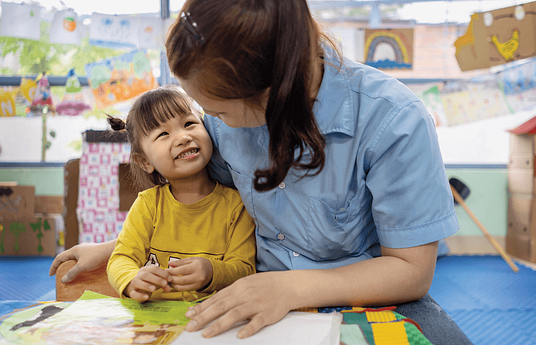What we do?
During the Covid-19 lockdown, we have been presented with case scenarios highlighting the increased involvement of fathers in their child’s learning. The lockdown forced educators to pivot to design and implement virtual and distant learning programs. Given the limitations of access to their students, these educators found themselves being supported by parents, who were mobilising learning on the ground. Observing this change in dynamic, with the onus of teaching being shifted from teacher to parent, the team at Yein Udaan has launched an initiative that equips fathers with resources to not only build healthy relationships with their child but also develop their child’s life skills (as recommended by the WHO).
We have been creating life skills curriculum with activities that are age agnostic, easy to understand and practice, concise and purposeful, and most importantly, vetted by a team of fathers to check for feasibility of implementation. These activities are then shared on a WhatsApp group which is led by fathers and for fathers. The program is designed to run for fourteen weeks. Throughout week 1, we provide fathers simple activities to build or strengthen bonds with their child, and encourage them to fill in our baseline survey. Every life skill is explored over a week through six short activities shared from Monday to Saturday, while Sunday is an open forum for fathers to share their feedback and stories. In week 14, we will ask fathers to fill in an impact survey plotted against the baseline survey to gauge growth due to our program.
Our vision is for every father engaged in their child’s learning and growth. Our mission is to provide support and tools to fathers, enabling them to be active participants in their child’s life. The model is simple:
In the short-term, we intend for the fathers to have the tools and safety net to explore relationships with their children. This will not only empower fathers to play a more active role in their child’s lives but also enable fathers to become teacher-leaders. Through the delivery of the life skills program, we aim for the children to obtain 21st century skills which are often not taught in schools. In the medium-term, we aim to build social capital in fathers through training modules to mobilise them to scale the program within their networks thereby, organically impacting their community and creating a wave of social change through a shift in mindsets and attitudes. Moreover, we hope that, as decision makers, fathers will witness the potential of their children and re-enrol them in school instead of engaging their children in labour practices. We perceive that participation in the program will not only positively affect the household but also society as a whole.
Why we do it?
In India, the primary role of parenting and caregiving is often played by the mother. Culturally, fathers are considered the breadwinners and do not actively participate in household work or the upbringing of children. This has several repercussions including:
- Unequal gender roles reinforced over generations: biased decisions made in favour of the boy child; fathers, as decision-makers, do not prioritise the girl child's education
- Lack of male perspective and role models: boys don't have positive male role models to learn from; boys, in turn, become fathers with biased mindsets
- Onus and pressure of parenting on working mothers: mothers are burdened with home and workplace responsibilities; responsibility of upbringing and parental care falls entirely on the mother
The premise of parent involvement, as proposed by Epstein (2002), is that if children feel cared for and are encouraged to work hard, they may try their best to do well in academia and develop skills to remain in school. Epstein (2002) and Sanders (2002) further emphasise on the positive impact parent engagement has on the school climate and the unity it creates as families can connect with each other and work together with teachers towards the school’s overall success. This may reinforce the importance of collaborative learning, staying in school and hard work from all stakeholders involved in students’ learning (Epstein, 2002).
Domina (2005, p. 235) proposes three ways in which involvement may influence children’s outcomes. He posits that “parental involvement socializes”, that is, parents being engaged in learning at home reinforces the importance of education. Domina further suggests that “parental involvement generates social control” as parents who regularly engage in the school’s activities can monitor teacher practices and student behaviours. He also offers that “parental involvement gives parents access to insider information” as engaged parents learn about problems and solutions before other parents. Thus, Domina argues that parent involvement may have the potential to provide parents with a platform to be active members of the school community, ensuring teachers and students remain engaged in learning.
This study by Domina (2005) also illustrates the positive impact of parent engagement in the behavioural developments of students. He finds that children whose parents attend PTA meetings, participate in school activities and follow-up on homework, exhibit lower behavioural problems. Domina further identifies that such improvements in behaviour may lead to improved cognitive capacities over time, as students’ positive attitudes may further influence their investment in learning. Thus, it may be argued that, even when parent engagement cannot be directly attributed for improved academic achievement, it may still be indirectly influential.
To study the impact of parents’ participation in learning on students’ achievements in the Indian context, ASER (2013) conducted a survey pan India and highlighted the positive impact through case studies. In the north-eastern state of Assam in India, children, whose mothers were educated and who came from literacy-rich home environments, performed better than their peers on basic literacy and arithmetic skills (ASER, 2013). Similarly, in the states of Rajasthan and Bihar, children’s ability to read and solve basic math problems improved with an increase in their mothers’ communication and engagement with their children, even though these mothers were illiterate (ibid.). Thus, it may be argued that parents’ participation in learning, even when diverse in approach and extent, has an impact on students’ outcomes.
ASER, 2013. Annual Status of Education Report (Rural), s.l.: ASER Centre.
Domina, T., 2005. Leveling the Home Advantage: Assessing the Effectiveness of Parental Involvement in Elementary School. Sociology of Education, 78(7), pp. 233-249.
Epstein, J. L., 2002. School, Family, and Community Partnerships: Caring for the Children We Share. In: School, Family, and Community partnerships: Your handbook for action. London: Sage Publications Ltd., pp. 7-30.
Sanders, M. G., 2002. Community Involvement in School Improvement: The Little Extra That Makes a Big Difference. In: School, Family, and Community Partnerships: Your Handbook for Action. London: Sage Publications Ltd., pp. 30-41.

%20(1).jpg)

